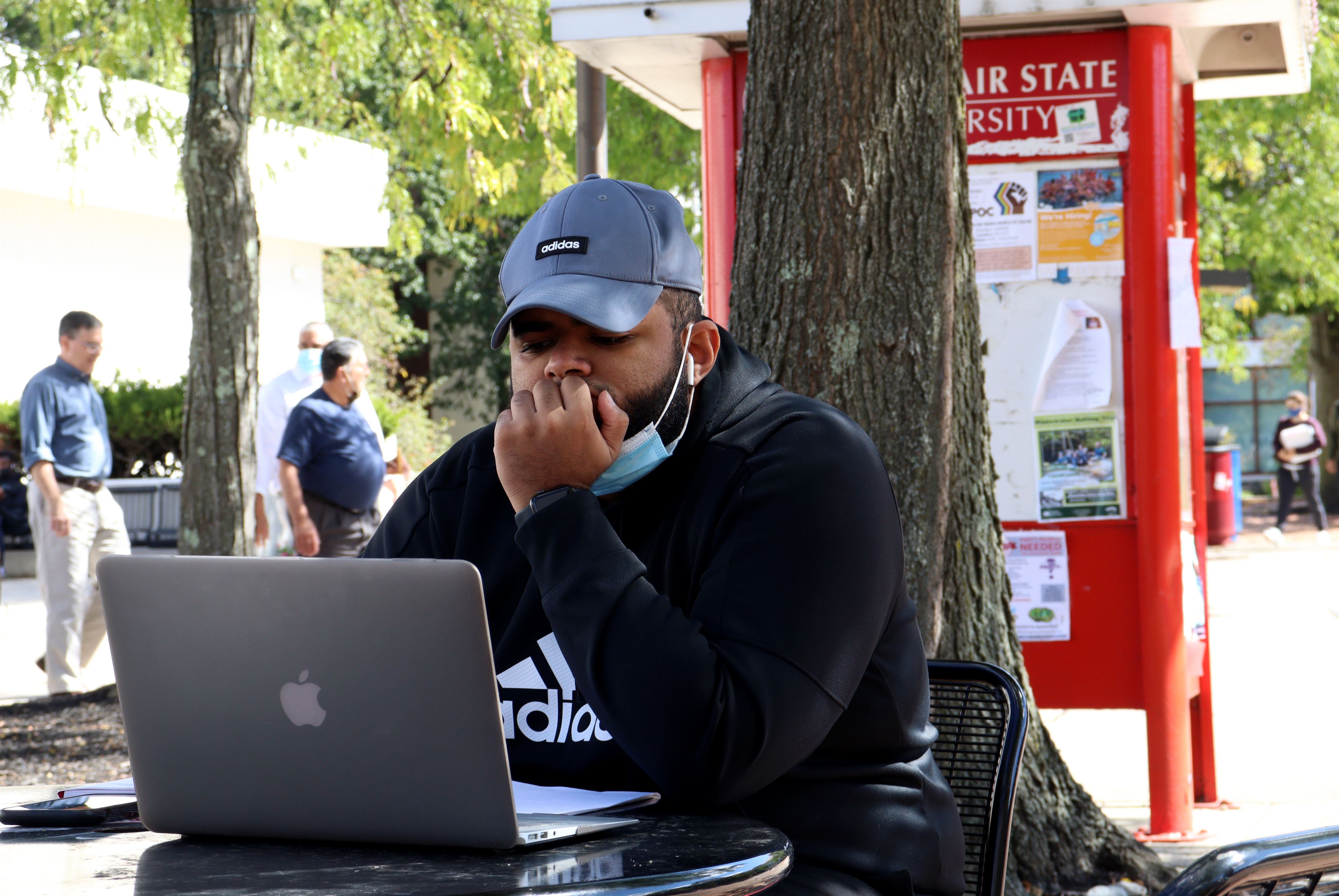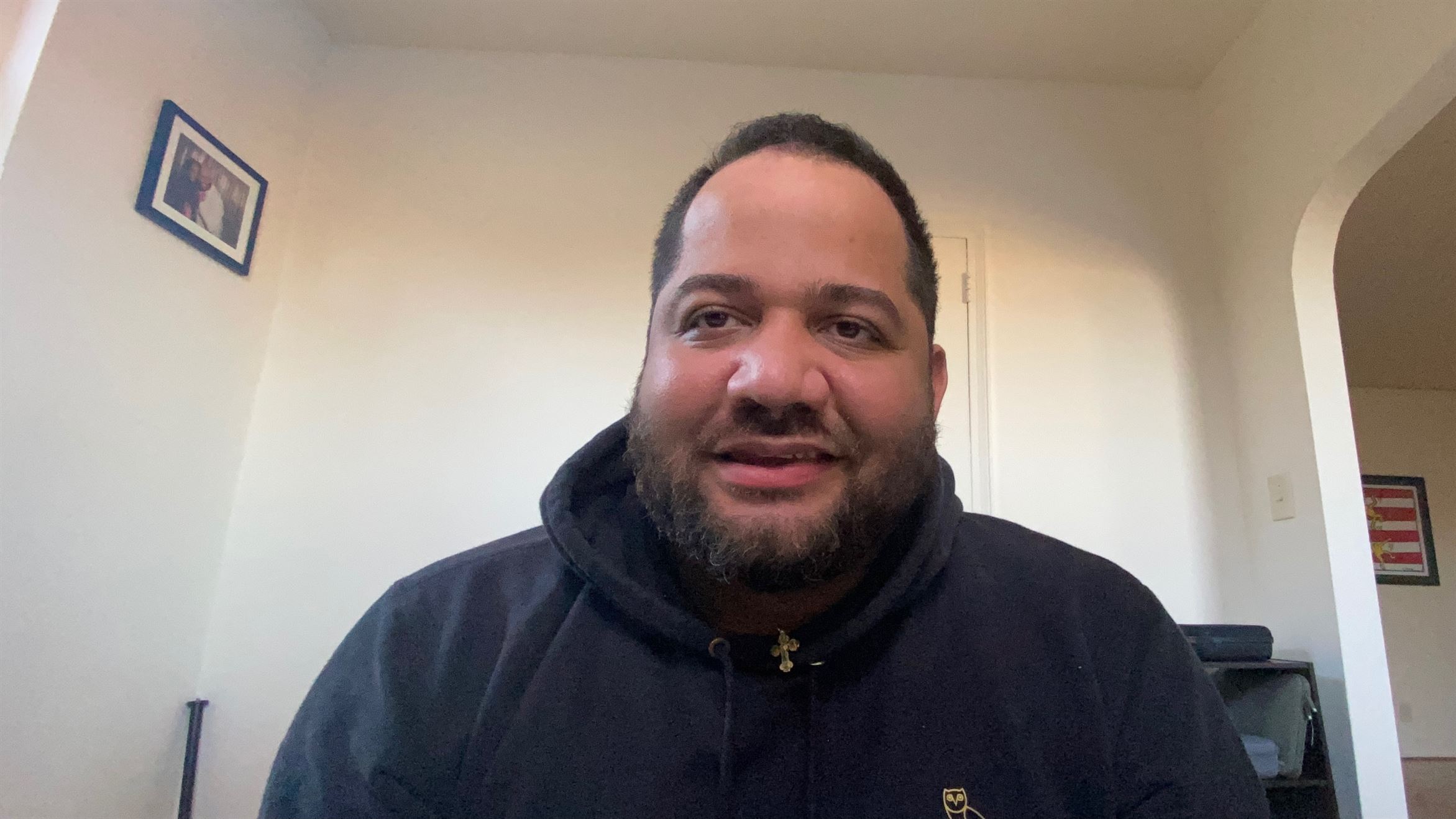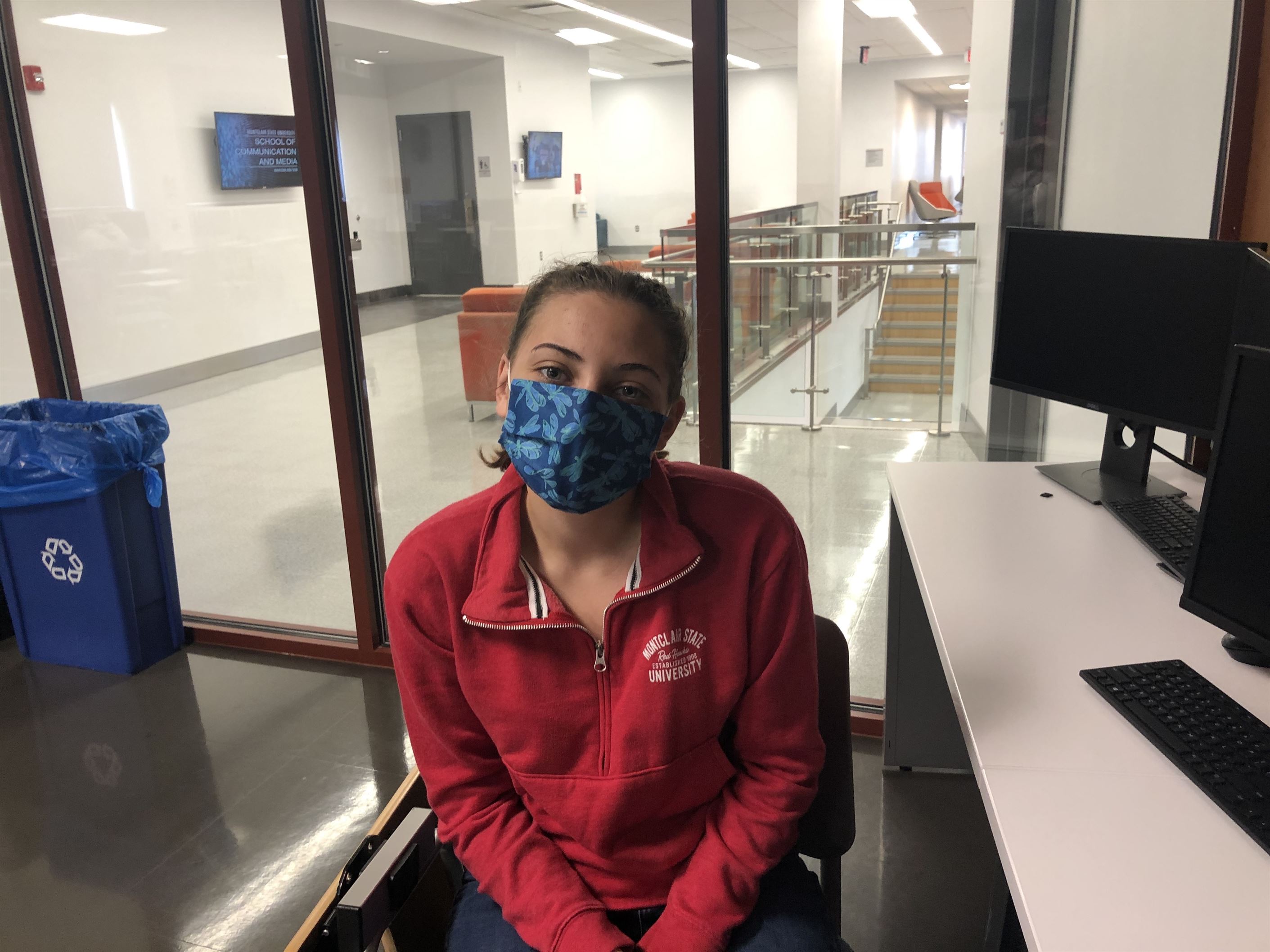Montclair State University faculty members received an email on Sept. 26 informing them that they cannot switch their course modality from in-person to online without university approval.
David Winters, an adjunct professor in the School of Communication and Media, has held several classes online due to his concerns over the health and safety of himself and his students.
“What’s most important is that the university makes clear to the entire community that the measures in place only aim to mitigate the spread of the virus,” Winters said. “These policies do not try to eliminate spread and cannot guarantee the protection of our vulnerable loved ones at home.”
Kimberly Killmer Hollister, acting provost and vice president for academic affairs, sent the email to faculty warning against the switch of course modality. Hollister said the provost’s office has received complaints from students regarding a change in class delivery from in-person to online. Some of these changes were attributed to concerns about coronavirus (COVID-19).
“Please know that the administration monitors [COVID-19] very closely,” Hollister said. “President [Jonathan] Koppell has convened a team of clinicians, staff and faculty members, which includes respected experts in virology and public health. That group meets regularly to review everything related to [COVID-19] on campus, and it advises the administration on best practices.”
According to Hollister’s email, the modality of class delivery cannot be changed at faculty discretion.
“If we need to pivot to remote learning, that decision will be made at the university level, and it will be based on solid scientific evidence,” Hollister said.
Hollister added that the instructors need to teach the course in the modality that was originally advertised to students.
“If you have moved your on-campus course to remote instruction, it must change back immediately,” Hollister said. “Shifting modalities in the middle of the semester disrupts our students’ learning, and it breaks the promise we made to them when we published the course catalog.”
Winters believes faculty should have the option to hold virtual classes if deemed necessary by the professor. He alleges some faculty unions have failed to negotiate this decision with the university due to political reasons.
“Perhaps most tragically, some faculty unions have been unwilling to push university administrations in New Jersey to give faculty more freedom to choose theirteaching modalities, largely because those unions don’t want to catch the ire of their powerful political allies in a Democratic Party that is desperate to keep students in classrooms,” Winters said.
Hollister said the university will not be moving toward online instruction at this time.
“We are confident that the risk to individuals on our campus remains low, and there is no reason at this time to pivot to online instruction,” Hollister said.
Andrew Mees, the university spokesperson, expects faculty to comply with Hollister’s instructions.
“If anyone does not, the dean of the college will address it with that individual,” Mees said.
Conan Ramirez, a senior television and digital media major, said faculty should continue teaching in person.
“I just think [switching to virtual learning is] not right,” Ramirez said. “I feel like in-person classes are way better than online classes, so it’s taking away the opportunity for students to be more focused in class because I took online classes and I wasn’t focused.”
Chloe Swift, a senior television and digital media major, said professors should prioritize safety.
“If online is what they feel is safer, then I prioritize safety over university policy,” Swift said. “I do think they should be talking to the class, getting the opinions of others, but if it’s a question of safety, I would always pick that.”
Winters says universities not leaving the course modality decision to faculty is putting the community in danger.
“Opaque information from university administrations and [the] faculty unions’ inability to push the issue have left many faculty and students in New Jersey up a creek with only their disposable masks and some university-provided anti-bacterial soap to paddle,” Winters said.





